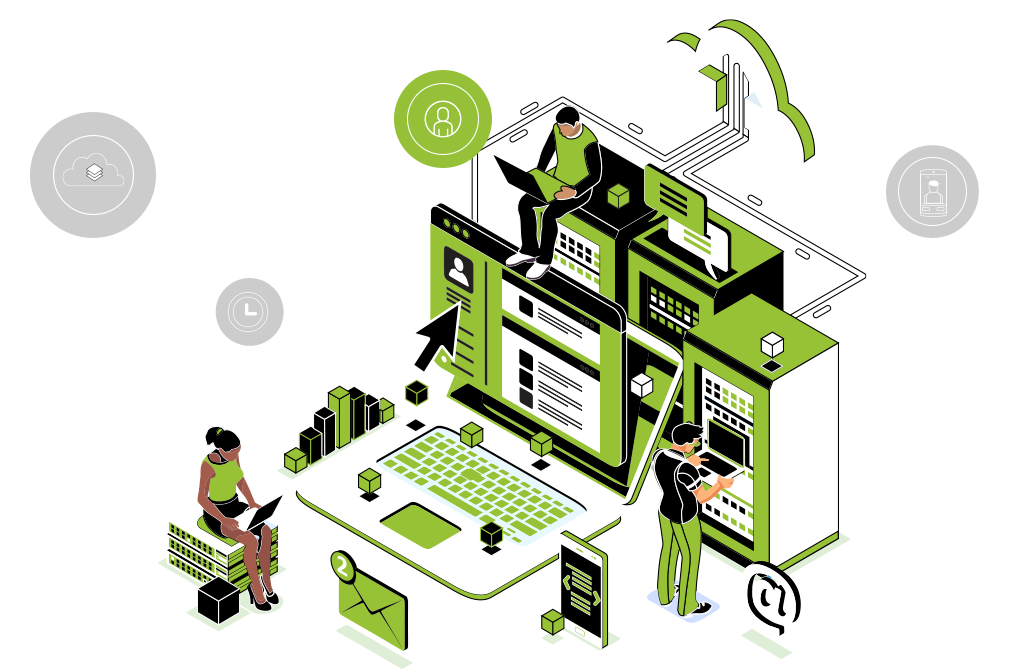Before we get into the details of what a cloud security audit really entails, it pays to first understand why a cloud security audit is so important in the first place.
These days, most businesses are moving their businesses online through cloud hosting or software as a service (SaaS) providers. With this exciting movement towards digital, however, comes an increase in security threats.
This used to be more commonplace with on-prem data, software ad applications. Today, we are seeing a huge rise in data theft and security breaches within the cloud space, as cyber criminals become progressively skilled in the act.
A cloud security audit explained
So, this is where a cloud security audit comes in. Companies need to continuously do an audit to evaluate, assess, improve and maintain their security software on an end-to-end basis. Any weak point within a company’s security is a potential “in” for individuals on the outside.
The Cloud Native Developer https://deimos.io/
Who does the security audit?
The individual, team or software that performs a security audit for your company’s resources will act like someone on the outside, trying to break in and access your personal data. This will help to identify key issues within your security architecture, armour you up, and seal any weak points.
When done thoroughly, this can increase your chances of being bulletproof, resulting in an overall stronger defence system. As always, it’s important to continuously improve on your defence systems regularly and not assume they are solid.
The two main approaches and methodologies used to perform security audits
Although there are multiple ways you can go about doing a security audit, there are two common, complementary approaches used by businesses.
The first approach is called penetrative testing. As we mentioned before, this method involves the party responsible for performing the audit to place themselves in the shoes of the cyber attacker. The main goal here is to break into and gain access to your company’s personal data and resources, by exploiting any vulnerable spots and technical oversights.
The second approach which follows the first is what’s called a vulnerability assessment. Similarly to the first approach, this method focuses on identifying any weaknesses within the security realm. The key difference here is that this method usually focuses on the most common forms of cyberattacks.
It helps to think of these two methods to improve security as a double-layered filtering process. The first layer gets rid of the bulk of it, whilst the second picks up anything that may have slipped through the first.
How do I know who to select to perform my security audit?
It’s important to make sure that you select a company that specialises in security audits, investing in top-notch services that have your best interests at heart. Make sure they have a proven track record and be sure to ask them as many questions as you need to before agreeing to hire them.
You need to be able to trust whoever you hire, because they will need to have full access to all of your business’ information, including anything sensitive, in order to do the best job they possibly can. If you can’t fully trust them with this information, don’t hire them. The last thing you want to do when trying to improve your security is to accidentally do the opposite.
Make sure you do a deep background check into the authenticity of each of your prospective auditors, considering factors like how long they’ve been around and what people have to say about them.
You don’t have to close yourself off to newer companies altogether. However, to be extra cautious, you might want to only consider going with a known service provider, one that has maintained a large majority of positive reviews over a relatively long period of time.
Please link to: https://deimos.io/cloud-security-audit
What you should expect to receive after a cloud security audit has been performed
A cloud security audit doesn’t end straight after it’s been performed. Once completed, you should receive a full run-down of all of the findings, as well as all the possible solutions or fixes.
To ensure you’re getting everything you paid for, be sure that you receive an assessment report, an assessment workshop and any assistance you may need – although the assistance after the report may come at an additional fee. Be sure to discuss and agree on these terms before agreeing to go ahead with any cloud security audit company.
Assessment report
You should receive a detailed, passport protected cloud security audit report, highlighting each and every vulnerability found, as well as how severe each one is. Furthermore, these should be backed up by evidence, showing the risks involved with each threat.
Lastly, they should also explain any and all potential risks that may come with them, accompanied by solutions to each of those risks.
Assessment workshop
Once you’ve received the physical report, it’s time to have the report explained to you in more detail so that everyone is on the same page. Depending on who is performing your cloud security audit, they’ll usually set up a meeting or workshop to discuss it with you.
Assistance
The third step is to ask for assistance in carrying out all the solutions and fixes that were highlighted before. Usually, it’s recommended that you do this with the same team that was responsible for doing your security audit, however, you may wish to outsource these fixes depending on the situation.





More Stories
The Uses and Functions of VPN to Businesses
9 Steps To Fix Brother Printer Offline Issue On Mac Devices
Never Mess With The Jabra Headset, And Here Are The Reasons Why